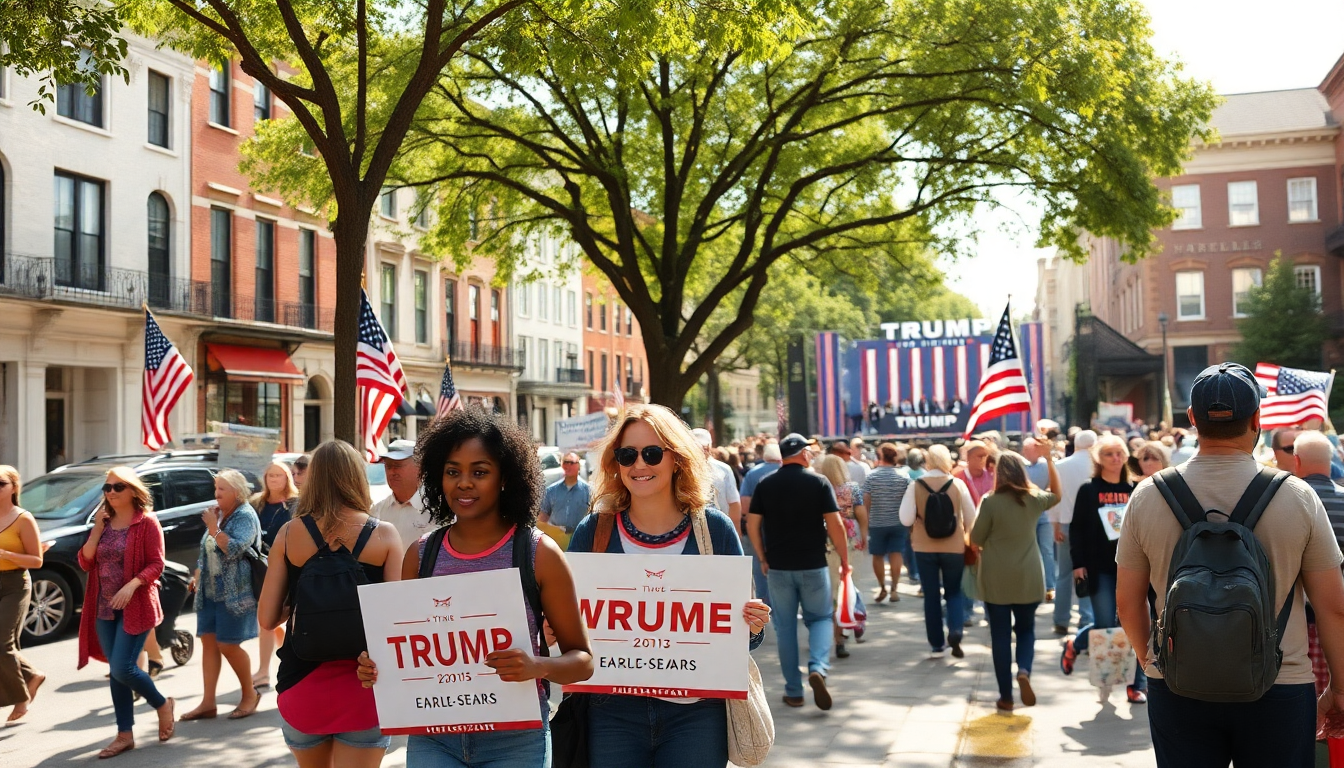Table of Contents
The Virginia gubernatorial race is heating up, and it’s hard to ignore the buzz surrounding Republican candidate Winsome Earle-Sears, especially after President Donald Trump’s recent comments. In a political landscape that’s constantly shifting, Earle-Sears is gearing up for a tough battle against Democrat Abigail Spanberger—a contest that’s attracting attention from both sides of the aisle and political analysts alike. But what does this mean for the future of Virginia politics?
Trump’s Support and the Current Political Climate
When President Trump recently weighed in on Winsome Earle-Sears, he pointed out a critical factor in the ongoing gubernatorial race: the importance of perception. He remarked on her opponent’s weaknesses, saying, “the candidate she’s running against is not very good.” This comment might suggest that Trump sees potential in Earle-Sears, despite the uphill climb she faces. But can confidence alone win a campaign?
Interestingly, while Trump expressed a willingness to support Earle-Sears, he stopped short of offering her a full endorsement—something he has done for other candidates. This cautious approach could reflect a deeper strategy, especially given the recent polling data showing Earle-Sears trailing Spanberger. Understanding the subtleties of political endorsements can really shed light on how candidates navigate their campaigns and the backing they receive.
The Polls: A Telling Indicator of Campaign Dynamics
The latest Virginia Commonwealth Poll paints a challenging picture for Earle-Sears. She currently sits at 37% support compared to Spanberger’s 49%. That’s a significant gap—and one that Earle-Sears will need to address if she wants to turn the tide. On top of that, Governor Glenn Youngkin enjoys a 49% approval rating, a stark contrast to Trump’s numbers in the same poll. What does this mean for Earle-Sears as she looks to capture voter trust?
This discrepancy prompts some important questions: How do national figures like Trump influence local races? And what happens when their popularity doesn’t translate well in swing states like Virginia? Earle-Sears will need to leverage her local connections and the positive reception of state leaders to strengthen her campaign in this competitive environment.
Fundraising: The Financial Backbone of Campaigns
Fundraising is another critical piece of the political puzzle. Unfortunately for Earle-Sears, she’s not only lagging in the polls but also in her fundraising efforts. In the year’s first quarter, she raised $3.1 million, while Spanberger substantially outpaced her with over $6.7 million. The second quarter saw Spanberger raising an impressive $10.7 million, highlighting the financial hurdles Earle-Sears faces. How crucial is financial backing in modern campaigns?
Fundraising is vital for campaign visibility and outreach. Earle-Sears must craft innovative strategies to boost her fundraising capabilities and connect with donors who resonate with her vision. After all, the financial aspect of campaigning can significantly impact the effectiveness of outreach efforts as the election approaches.
Looking Ahead: The Road to November
As we move deeper into the gubernatorial race, the dynamics are bound to shift. Earle-Sears faces the challenge of not only closing the polling gap with Spanberger but also navigating the complexities of political endorsements, fundraising, and public perception. The next few months will be crucial as both candidates ramp up their campaigns in anticipation of the general election this November.
In summary, the Virginia gubernatorial race highlights the intricate dance between local and national political dynamics. It underscores how vital support, funding, and effective communication are to a successful campaign. With Trump’s remarks providing a backdrop, Earle-Sears must strategize wisely to seize any advantage she can find in this competitive political arena. Will she rise to the occasion?


